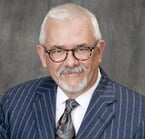The level of anxiety facing children, parents, schoolteachers and administrators, congregational shepherds and lay leaders, and our public policy makers is enormous—pandemic anxiety for pandemic times! Although the fear of physical, emotional, spiritual, and financial disorder and disease is very real due to this destructive virus, the accompanying anxiety (rumination and worry of what could or might happen to us and our loved ones) is debilitating in and of itself.
Why Are We So Anxious?
You see, there is a difference between fear and anxiety. Fear is distress due to an immediate and true threat to one’s health or safety. Fear causes us to freeze, flee, or fight the immediate threat. Fear protects us. Usually, fear does not last for a long time. Anxiety, on the other hand, is a learned, memory-influenced response to future potential stress. Although some concern may be temporarily helpful (e.g., being anxious about an upcoming test so that we study harder), anxiety is generally more debilitating, it causes us to function less effectively, and it can make us sick.
Physiologically (nervous system reaction and stress hormone release), fear and anxiety trigger similar physical and emotional responses. You know the feeling (we call it the stress-response): flushed face, heart rate and blood pressure increase, sweating, stomach upset, headache, to name a few. Once we face and deal with our fear, which is generally short-lived, or when the immediate threat goes away, our body returns to a more comfortable set point. Our pulse and blood pressure reduce, we relax, our headache and stomachache disappear. But anxiety is longer lasting; it continues to bathe our body and mind with stress hormones. We remain continuously vigilant, on high alert, and it uses up physical and emotional—and I dare say spiritual—energy. Anxiety exhausts us.
Although COVID-19 produces plenty of fear, what is really debilitating us and our children is anxiety.
So why are we so anxious? I would suggest to you that we are anxious because the pandemic is producing rapid and overwhelming change. Change has always been a part of our personal, family, and community life. But when we consider history, we see that change usually occurs to a culture over centuries, decades, or years—and not so commonly over days and moments. We are experiencing change by the minute, and that change is being fed to us on a continuous loop through all sorts of electronic communication.
Look around you right now; how many people within your sight are checking their handheld devices? How often do you pull out your smart-phone or glance at your computer for the latest coronavirus bulletin, the current infection or death rate, the latest political, social, or medical expert’s recommendation? What is this doing to your health, to your family’s well-being, to your child’s feeling of safety and comfort?
Turning “ME” into “WE”
What’s more, we should realize that anxiety is the normal human being’s reflex response to rapid change, especially when uncertainty and risk levels are high. When there are a large number of unknowns or variables (as there are with a pandemic), our nervous system searches its memory switchboards to find defaults and past learned strategies to deal with present threats. Instead of developing creative, adaptable, and collaborative responses to deal with distress, we tend to fall back into old unhealthy habits—like being anxious and dysfunctional. We tend to fall back into coping mechanisms that are totally focused on ourselves, the ME within us: what’s best for ME to deal with this trouble and worry?
Scripture is filled with references of human default to ME-strategy. St. Paul enlightens us in this regard when he talks about the spiritual, natural old Adam (Psychikos, 1 Corinthians 15:21–22). Old Adam is focused inward, turned into his ME. The new Adam (Pneumatikos), rather, is informed or organized by the Holy Spirit, responding to the distresses of human life by moving outward into the relationship with Christ and with one another—WE.
In the next three blogs, we are going to look at how the Holy Spirit walks in front, above, below, behind, and within us as we deal with the anxiety of this pandemic as children, parents, teachers, and administrators. We’ll try to provide both theological and practical suggestions to help not just survive but also actually grow and thrive through these days, as we know the Lord works all things for good for those who love Him (Romans 8:28). We are not facing these times alone; God promises to be present and active—today!
Do not be anxious about anything, but in everything by prayer and supplication with thanksgiving let your requests be made known to God. And the peace of God, which surpasses all understanding, will guard your hearts and your minds in Christ Jesus. Philippians 4:6-7
More than ever, it’s important to care for the spiritual, mental, social, and physical health of our families.















